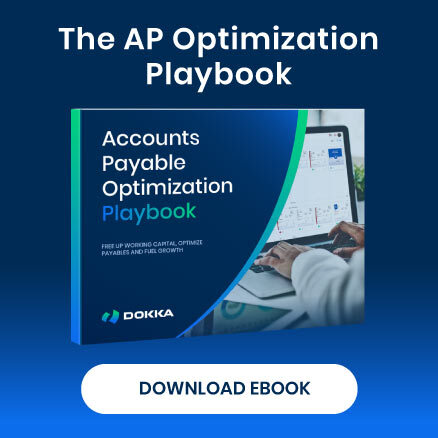In one of our previous articles about how to go from accountant to CFO, we mentioned that gaining certification is one of the essential steps on this career path. Why? Because this not only showcases a candidate’s commitment to the profession but also equips them with the necessary skills and knowledge.
As businesses increasingly look for leaders who can not only report on numbers but also use them to drive strategy, the choice between these certifications can significantly impact a CFO’s effectiveness in their role. Beyond the standard MBA, two certifications frequently arise in conversations about CFOs: the Certified Public Accountant (CPA) and the Chartered Financial Analyst (CFA). These credentials signify rigorous training, expertise, and a commitment to professional excellence.
However, there is ongoing debate regarding the necessity of these certifications for a CFO. Some advocate that such credentials are vital for success in the role, while others contend that experience, leadership skills, and a thorough understanding of the industry are equally crucial.
In today’s post, we’ll delve into the significance of qualifications for CFOs, detailing the specifics of CPA and CFA certifications, exploring their distinctions, and outlining the pathways to obtain them.
Let’s dive in.

CPA and CFA Professional Qualifications
One of the main arguments in favor of professional qualifications for a CFO is that they add credibility and demonstrate expertise in the field.
As a key member of the executive team responsible for managing an organization’s finances, having specialized education and training can instill confidence in stakeholders, investors, and board members. It also helps a CFO understand complex financial concepts, stay updated with changing regulations, and make informed decisions.
CPA and CFA are two of the most well-known professional qualifications for financial professionals. While both require a rigorous examination process, they differ in terms of focus and scope.
What Is a CPA?
A Certified Public Accountant (CPA) is a professional accounting certification granted by state boards of accountancy in the United States. It requires passing an exam and meeting specific education and experience requirements. CPAs are licensed to practice public accounting and can offer services such as financial statement audits, tax preparation, and consulting.
CPA candidates must pass the Uniform CPA Examination, which is developed and graded by the American Institute of Certified Public Accountants (AICPA). The exam consists of four sections:
- Auditing and Attestation (AUD)
- Business Environment and Concepts (BEC)
- Financial Accounting and Reporting (FAR)
- Regulation (REG)
Most states require CPA candidates to have one to two years of accounting experience under the supervision of a licensed CPA. This experience can vary by state and the specific type of work performed.
After meeting the education, examination, and experience requirements, candidates apply for licensure in their respective states. Once licensed, CPAs must meet continuing professional education (CPE) requirements to maintain their license.
What Is a CFA?
The Chartered Financial Analyst (CFA) designation is a highly respected credential in finance and investment. Offered by the CFA Institute, it requires passing three challenging exams covering topics such as ethics, economics, financial reporting, and portfolio management. Candidates typically need a bachelor’s degree and four years of relevant work experience in investment decision-making.
The CFA exams are divided into three levels:
- Level I focuses on basic investment tools and concepts.
- Level II emphasizes asset valuation.
- Level III integrates concepts into portfolio management.
Candidates must also adhere to a strict code of ethics and become members of the CFA Institute. CFAs work in various roles, including investment management, financial analysis, risk management, and advisory services.
The CFA designation is globally recognized, indicating a high level of expertise and commitment to ethical standards in finance. While there are no formal continuing education requirements, CFAs are encouraged to stay updated with industry developments. The CFA credential is essential for many careers in investment management and finance, showcasing deep knowledge and professional competence.
CPA vs. CFA: What Is the Difference?
1) Focus and Scope
CPA
- Focuses on accounting, auditing, taxation, and financial reporting.
- Primarily serves roles in public accounting, corporate accounting, tax advisory, and auditing.
CFA
- Specializes in investment management, financial analysis, and portfolio management.
- Commonly serves roles in investment banking, asset management, research analysis, and financial advisory.
2) Certification Process
CPA
- Requires a bachelor’s degree with specific accounting coursework.
- Must pass the Uniform CPA Examination, which consists of four sections: Auditing and Attestation, Business Environment and Concepts, Financial Accounting and Reporting, and Regulation.
- Requires 1-2 years of professional experience in accounting.
- Licensure and ongoing continuing professional education (CPE) are mandatory.
CFA
- No specific degree requirement, but a bachelor’s degree is typical.
- Must pass three sequential exams (Levels I, II, and III) covering ethics, economics, financial reporting, and portfolio management.
- Requires four years of professional experience in investment decision-making.
- Membership in the CFA Institute and adherence to ethical standards are required.
3) Roles and Responsibilities
CPA
- Conducts audits and assurance services.
- Prepares and advises on taxes.
- Provides consulting services on financial matters.
- Engages in forensic accounting.
CFA
- Manages investment portfolios.
- Conducts financial and investment analysis.
- Assesses and manages financial risks.
- Provides financial and investment advice.
4) Recognition and Career Path
CPA
- Highly respected in accounting and finance sectors, essential for auditing and tax-related careers.
- Often required for higher-level positions in corporate finance and accounting firms.
CFA
- Globally recognized in the finance industry, crucial for careers in investment management and financial analysis.
- Valued for roles in investment banking, asset management, and hedge funds.
Do All CFOs Have These Qualifications?
While it may seem logical that all CFOs would possess these qualifications, in reality, there are many successful CFOs who do not hold a CPA or CFA designation. This is because there are various paths to becoming a CFO, and having these certifications is just one of them.
Some CFOs may have started their careers in areas such as sales or operations and worked their way up to the role, while others may have extensive experience in finance but chose not to pursue additional qualifications.
The decision to obtain professional certifications can also depend on the industry and company size. For example, in industries like healthcare or technology, where financial regulations and reporting requirements may be more complex, having a CPA or CFA can be beneficial. On the other hand, smaller companies may prioritize practical experience over formal qualifications.
So, do CFOs need these certifications? The short answer is no; a CFO does not necessarily need to hold a CPA or CFA certification. However, having one or both of these certifications can be beneficial for a CFO’s career.
Advantages of Having a CPA or CFA
The CPA and CFA credentials are highly esteemed qualifications within their respective fields. Each provides distinct advantages that can greatly enhance a CFO’s effectiveness and career opportunities.
Benefits of Holding a CPA Certification
The CPA credential is one of the most recognized and esteemed in the accounting profession. Achieving CPA status involves passing a rigorous exam covering areas such as auditing, taxation, financial accounting, and reporting. CPAs must also adhere to strict ethical standards and engage in continuing education to maintain their license.
For a CFO, possessing a CPA certification can be highly advantageous. Here’s how:
- Enhanced financial reporting skills: Provides a comprehensive understanding of accounting principles, which is crucial for overseeing financial reporting and ensuring compliance.
- Increased credibility: Demonstrates a high level of commitment and dedication to the field of accounting, thereby enhancing the CFO’s reputation and credibility.
- Expanded services: Enables the CFO to offer additional services, such as external audits and tax consulting, which add value to the company.
- Risk identification: Equips the CFO with the skills to analyze financial data and identify potential risks, supporting informed strategic decision-making.
Benefits of Holding a CFA Certification
The CFA exam covers topics such as economics, portfolio management, equity investments, and alternative investments, equipping professionals with advanced skills in investment management and financial analysis.
A CFA certification offers several benefits:
- Expertise in investment analysis: Provides advanced skills in analyzing financial statements, evaluating investments, and making informed decisions based on market trends.
- Versatility in finance roles: Offers knowledge that extends beyond traditional accounting practices, making the CFO suitable for various finance roles such as portfolio management and risk assessment.
- Global recognition: Enhances the CFO’s competitive edge in the job market with a globally recognized credential, underscoring their commitment to excellence in finance.
- Strategic investment decisions: Aids in managing assets and making sound investment decisions, which is particularly valuable when dealing with investors or handling the organization’s financial portfolio.
How To Get CPA and CFA Professional Qualifications
Obtaining a CPA or CFA certification is a challenging endeavor that requires significant dedication and commitment. Here’s an overview of the steps involved in earning each qualification.
Certified Public Accountant (CPA)
To become a CPA, you need to:
- Complete a Bachelor’s Degree: Earn a degree in accounting or a related field, and often complete additional coursework to meet the 150 credit hour requirement.
- Apply for the CPA Exam: Submit your application through your state board of accountancy.
- Pass All Four Sections of the CPA Exam: Successfully complete the four sections – Audit and Attestation, Business Environment and Concepts, Financial Accounting and Reporting, and Regulation.
- Gain Relevant Work Experience: Obtain work experience under a licensed CPA, as required by your state.
- Pass an Ethics Exam: Complete an ethics exam if required by your state.
- Apply for Your CPA License: Submit proof of passing the exam and fulfilling the experience requirements.
- Complete Continuing Education: Fulfill continuing education requirements to maintain your license.
Chartered Financial Analyst (CFA)
To become a CFA, follow these steps:
- Earn a Bachelor’s Degree or Equivalent Work Experience: Obtain a degree or relevant work experience in a related field.
- Register for the CFA Program: Enroll in the Level I exam.
- Pass All Three Levels of the CFA Exams: Successfully complete Level I (focused on investment tools), Level II (focused on asset valuation), and Level III (focused on portfolio management and wealth planning).
- Gain Relevant Work Experience: Acquire at least four years of relevant experience in investment decision-making roles.
- Submit a Professional Conduct Statement: Adhere to the CFA Institute’s ethical and professional standards.
- Apply for CFA Membership: Apply for membership to receive your designation once all requirements are met.
- Maintain Your CFA Designation: Adhere to the CFA Institute’s continuing education and ethical guidelines.
Each credential brings valuable skills and credibility to a CFO’s role, depending on the specific needs and focus of their organization.
If you’re a CFO, choosing between the CPA and CFA depends on your career goals, interests, and the specific skills you wish to develop. If you aim to specialize in accounting and regulatory compliance, the CPA designation is the most suitable. For a career in investment management or financial analysis, the CFA credential is highly regarded. An MBA is the best choice if you seek a comprehensive business education and aspire to leadership or executive roles.
Each credential offers distinct advantages, and in some cases, professionals may pursue multiple designations to broaden their expertise and career prospects. Assess your career aspirations, evaluate the demands of each program, and consider how each credential aligns with your professional objectives to make the best decision for your future.







